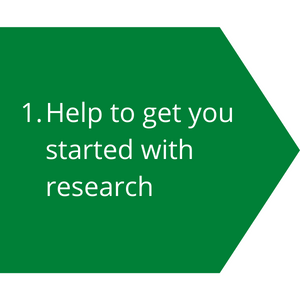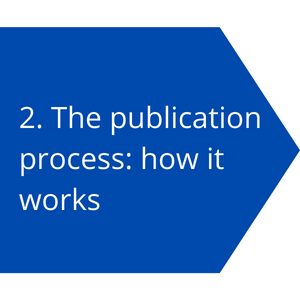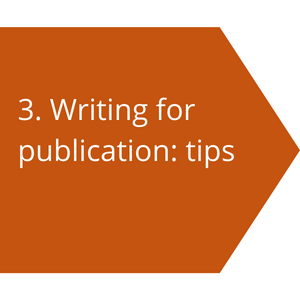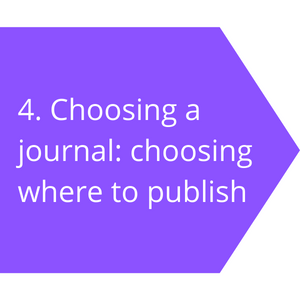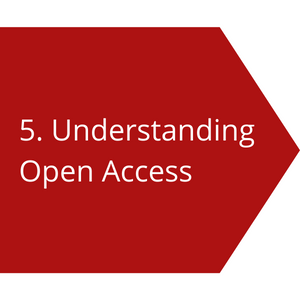Supporting Research & PublicationIf you're interested in getting involved in research and getting your research published, we're here to support you. On this page you can find out how the library can help, and access online materials drawn from across the library and research sector to guide you through the process. Help is also available from RFT's Research & Development Department, our Clinical Effectiveness Team and any university with which you are affiliated.
|
- EVIDENCE SEARCHING:
We can carry out a literature/evidence search to identify any previous research linked to your area of interest: simply fill in our request form and leave it to us. If you'd like to do your own searching and need a refresher, check out our Information Training Skills pages where you can sign up for a one to one course, or use the online training materials. Not sure where to search? See our Online Databases page.
- BOOKS & ARTICLES:
We can obtain the books and articles you need, either through our own stock or from partner libraries via interlibrary loan: request an article/book online. Search our online catalogue for books on the research process and your speciality area.
- UNDERSTANDING THE RESEARCH PROCESS:
Plan, Do, Share: Information for researchers from The University of Sheffield
Top Ten Tips: CAHPR's brief summary advice on key topics for novice, early career and experienced researchers.
- FUNDING SOURCES:
Support for Research Projects: Funding sources collated by The University of Sheffield
NIHR Funding: Latest funding opportunities
Medical Research Council: Latest funding opportunities
RCN research funding opportunities
Burdett Trust for Nursing: Grant Programmes
- OVERVIEWS:
Get Published: A Taylor & Francis guide to selecting a journal, drafting and submitting an article, peer review, production and promotion.
Getting published: an NHS Education for Scotland guide to planning, article writing and getting published.
How to get Published: a guide from Sage
The life-cycle of your manuscript: from submission to publication. Journal of Bodywork & Movement Therapies; Oct 2019; vol. 23 (no. 4); p. 683-689.
- GUIDANCE:
Writing for Publication: an easy to follow guide for nurses: Wiley
Writing Resources: Biomed Central's guide on writing and publishing a scientific manuscript.
Getting Published: RCN's simple guide for students on writing for publication
Getting a Research Paper Published: How to get your paper accepted for Publication: RCN Guidance
RCNi guidance on writing and submitting articles for publication
Guidance for New Authors: From the BMJ
How to write a scientific paper Research4Life
Winning the publications game: how to write and publish a scientific article in the right journal without wasting time. Borrow from the Library
Writing a journal article from your thesis or research project. New Zealand College of Midwives Journal (2020).
Turning your assignment into an article for British Journal of Nursing: British Journal of Nursing; Feb 2020; vol. 29 (no. 3); p. 178-179 - CREATING ACADEMIC POSTERS:
If you need to produce an academic poster for a conference or for an academic assignment come along to our course on Academic Poster Design covering the basics of content and layout.
Making an Impact with your Poster: tips from The University of Liverpool
Making a Research Poster: sources collated by library colleagues at Doncaster and Bassetlaw.
- REFERENCING:
We provide training in referencing, as well as online support materials and links to referencing tools, and we can advise on any referencing that you've used in your manuscript; see our Referencing Skills page, and read about our course 'How to Reference Your Work'.
- REFERENCE MANAGEMENT SOFTWARE:
You will have access to reference management software (such as EndNote or RefWorks) through any university with which you are affiliated, so start by checking what's available there. You can also use free reference management software such as EndNote Basic, Mendeley and Zotero.
Reference Management: a guide from The University of Sheffield
Reference Management Tools: a guide from Sheffield Hallam University
Reference Management: a guide by colleagues at the Library for NHS Ambulance Services in England.
- COPYRIGHT: CHECK WHAT YOU'VE INCLUDED:
We can advise on the copyright status of anything included in your article draft. Read more about how copyright works in the NHS, permitted use of materials (including images), and contact us for any further help and support.
- FIND A JOURNAL:
Think. Check. Submit: Helps researchers identify trusted journals and publishers for their research. Through a range of tools and practical resources, this international, cross-sector initiative aims to educate researchers, promote integrity, and build trust in credible research and publications.
JANE: Journal/Name/Author/Estimator: Have you recently written a paper, but you're not sure to which journal you should submit it? Or maybe you want to find relevant articles to cite in your paper? Or are you an editor, and do you need to find reviewers for a particular paper? Jane can help! Just enter the title and/or abstract of the paper in the box, and click on 'Find journals', 'Find authors' or 'Find Articles'. Jane will then compare your document to millions of documents in PubMed to find the best matching journals, authors or articles.
Find a Journal for Publication: a list of search engines and databases from the Bernard Becker Medical Library (US)
Find the Right Journal: a guide from Biomed Central
Where to publish: guidelines from The University of Sheffield.
Choosing the Right Journal for Your Manuscript. Journal of Nursing Scholarship; Mar 2019; vol. 51 (no. 2); p. 127-128
Wiley Journal Search Tool: find the right Wiley health science journal for your paper: select and compare journals.
- PREDATORY JOURNALS:
Predatory publishing – what medical communicators need to know. Bucceri, A., Hornung, P., & Schindler, T. (2019) Medical Writing, 28 (3), 28.
'The rise of 'predatory journals', also known as pseudo-scientific journals, poses a risk to the integrity of science and therefore medical communicators need to know about their practices. Upon receipt of a publication fee, predatory journals publish manuscripts regardless of their scientific merit, very often without any peer review, and without providing editorial services. To maximise profit, such journals disregard all aspects of scientific integrity and foster the dissemination of bad and bogus science, lobby materials, and conspiracy theories. Publishing in predatory journals can have dire consequences for authors, their careers, and the reputation of their institutions. Medical communicators can help authors avoid falling prey to predatory publishers'.
List of Suspicious Journals and Publishers from Yale University Library
Predatory Journals and Publishers: a guide by colleagues at the Library for NHS Ambulance Services in England.
'Open access (OA) means making research publications freely available so anyone can benefit from reading and using research' (JISC).
- OVERVIEWS:
An Introduction to Open Access: from JISC
Open Access: a guide from The University of Sheffield
Open Research: a guide from Sheffield Hallam University
- DIRECTORIES:
The Directory of Open Access Journals (DOAJ) indexes over 15,000 journals. It aims to "increase the visibility, accessibility, reputation, usage and impact of quality, peer-reviewed, open access scholarly research journals". (DOAJ, 2020).
Sherpa Romeo is an online resource that aggregates and analyses publisher open access policies from around the world and provides summaries of publisher copyright and open access archiving policies on a journal-by-journal basis.
OpenDOAR is the quality-assured, global Directory of Open Access Repositories. You can search and browse through thousands of registered repositories based on a range of features, such as location, software or type of material held.
- Where else can you share your research and innovation to maximise its reach and impact?
The Rotherham NHS Foundation Trust Research Repository
FutureNHS
The Academy of Fabulous Stuff: a social movement for sharing Health & Social Care Ideas, services and solutions that work
Publishing your research findings: NHS Heath Research Authority
NHS Innovation Accelerator
Innovation Agency Exchange


